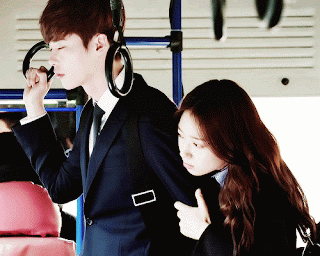Korean Things (that you should be prepared for)

Showers in Korean homes generally don't have a stall. The whole bathroom will get wet, depending on its size. There are drain(s) in the middle of the bathroom floor for the water, and the shower head is mounted on the wall. This was really only weird for me maybe the first time I used it. You get used to it pretty quick, once you learn to hide stuff you want to keep dry in the medicine cabinet, use the towel rack for your clean clothes, and the bathroom still gets nice and steamy so it's not cold in the winter.
Oh! Depending on where you are, there may be full size towels, but for the most part, people use hand towel-sized towels for bath towels. But as a tourist, if you're renting a place, there's probably full sized towels. And if you really need one, you can always buy one at the store?
 You will eat a lot. Food is an important part of Korean culture and everyone I know is more than generous about making sure you're properly fed. And dessert is usually some form of fruit, juice, shaved ice, yogurt, etc, as opposed to very sweet things like cakes and brownies.
You will eat a lot. Food is an important part of Korean culture and everyone I know is more than generous about making sure you're properly fed. And dessert is usually some form of fruit, juice, shaved ice, yogurt, etc, as opposed to very sweet things like cakes and brownies.Speaking of eating! When you go out to eat with a group of friends, usually food will be ordered for the whole table rather each individual ordering.
Sharing! That happens. Don't worry about "building a plate" or whatever, just dig in. Everything is for everyone to share at any mealtime table. Family style!
 Usually, you can get by as a tourist on little or no Korean language skills. However, if you want to, you can practice the basic phrases (and what I have to say on the subject of bowing) here. You don't have to be perfect! Any effort you put forth to use the language will make a good impression.
Usually, you can get by as a tourist on little or no Korean language skills. However, if you want to, you can practice the basic phrases (and what I have to say on the subject of bowing) here. You don't have to be perfect! Any effort you put forth to use the language will make a good impression.
Quite often, Korean people uses phrases that are direct translations of Korean phrases. This may seem odd or confusing at first, since many of these phrases are things we don't have equivalents to, so there's not really a more "natural" way to say them in English. For instance, you'll probably frequently be asked if you've eaten, e.g. "Did you eat dinner?" because in Korean asking if you've eaten is as common as saying "how are you?" when you greet someone.
You'll probably also often hear the phrase "how about...?"
e.g. "How about Korean food?"
What they're asking is, "What do you think about Korean food?"
This is just a result of direct translation. The word used in this sentence in Korean conveys the meaning of "what do you think" or "how do you feel about", but is usually directly translated as "how about".
You will stay up late. Korean culture, especially in the city, tends to be a late night one. People go out to eat, hang out at each other's houses, etc, late in to the night. Jet lag will have you wanting to crash at 8pm for a few days, but before you know it, you'll be proud of yourself for going to bed so early when it's midnight.
<3강다은 Da Eun




Comments
Post a Comment